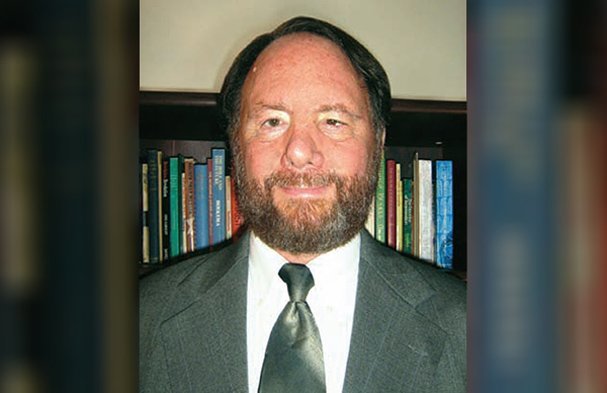
This article first appeared in the From the Editor column of the CHRISTIAN RESEARCH JOURNAL, volume 36, number 01 (2013). The full text of this article in PDF format can be obtained by clicking here. For further information or to subscribe to the CHRISTIAN RESEARCH JOURNAL go to: http://www.equip.org/christian-research-journal/
This past January 22 marked the fortieth anniversary of the Supreme Court decision Roe v. Wade, which upheld a lower court’s decision to strike down a Texas law that criminalized most instances of abortion. Texas had been one of forty-six states that prohibited abortion on demand, and it was the constitutionality of all such laws that Texas lawyer Sarah Weddington successfully challenged when she took on the case of Norma McCorvey (“Jane Roe”), a young Texas woman who was denied an abortion.
To better commemorate the fortieth anniversary of Roe v. Wade, I visited the website Remembering Roe, where national TV news clips from the day Roe was announced can be viewed.1 I was struck by the prophetic profundity with which some people spoke of the event. For example, Roman Catholic spokesman Msgr. James McHue, interviewed on CBS News, stated, “In this instance the Supreme Court has withdrawn protection for the human rights of unborn children and it is teaching people that abortion is a rather innocuous procedure provided that there are proper legal safeguards. I think that the judgment of the Court will do a great deal to tear down the respect previously accorded human life in our culture.”
It’s one thing to assess Roe properly forty years after the fact and another to do so articulately the very day the decision was announced. This was possible mainly because the Roman Catholic Church had already been engaging this issue for years—theologically, philosophically, educationally, and politically. In the meantime, evangelicals were largely asleep at the switch while all this was going on.
I remember the time vividly. Several months prior to Roe, I became involved with a Christian ministry that provided counseling and referrals for a wide variety of problems, including crisis pregnancy. This work sensitized me to the needs of unwed mothers and engaged me in helping them find alternatives to abortion. It also exposed me to the literature of the National Right to Life Committee, which persuaded me that abortion is murder except when necessary to save the life of the mother. However, for many evangelicals in the 1970s, abortion, like birth control, was a “Catholic issue” on which the Bible was silent. While evangelicals tended to oppose legalized abortion, many counted rape and incest among the exceptions, including CRI founder Dr. Walter Martin.2
For most evangelicals this thinking would change by the end of the decade, thanks largely to the widespread influence of Francis Schaeffer and C. Everett Koop, M.D.’s Whatever Happened to the Human Race? (Revell, 1979). Abortion became an evangelical as well as a Catholic issue, and it has played a pivotal role in evangelical voting and political activism ever since.
During the entire decade of the 1980s, no staff researcher that I know of believed that abortion could be justified in cases of rape and incest, but this remained CRI’s official position until Hank Hanegraaff became president of the organization in 1989. Before coming to CRI, Hank had argued against the rape and incest exceptions in a self-published booklet titled Annihilating Abortion Arguments.3 CRI soon made the booklet available, but how did this change of position affect the CHRISTIAN RESEARCH JOURNAL?
Up until 1990 the JOURNAL did not deal apologetically with abortion or any other ethical issue in order to maintain focus on our research specialties of the cults, the occult, world religions, general apologetics, and doctrinal discernment. However, by 1990, as the culture wars were heating up, it became clear that if Christians were to defend their faith in the marketplace of ideas effectively, they would need to address Christian ethics as well as Christian doctrines and historical claims. We realized that to equip Christians for this work, we didn’t need to change our focus. We simply needed to invite and accept article submissions to the JOURNAL from Christian philosophers who took the same approach to ethical apologetics as we took to other apologetic areas.
There was no lack of qualified authors to fill that bill. In fact, we were initially prompted to go this direction by our longtime contributor Francis (Frank) J. Beckwith, who offered the JOURNAL his four-part, exhaustive rebuttal to the arguments for abortion rights. Frank’s series began in our Fall 1990 issue, and I can still say that I have never read a stronger, more iron-clad rebuttal of abortion rights arguments.4
Since 1990, we have published at least fifteen articles on abortion proper, including updated critiques of both pro-choice and pro-life arguments and strategies. We have also published at least ten articles on related pro-life topics such as stem-cell research, cloning, doctor-assisted suicide, and infanticide.
Len Tucker of ABC News closed his report on the Roe v. Wade decision by observing: “The arguments will go on. Because perhaps more than any other issue in American life today, the abortion question is loaded with the emotional arguments of life, death, and morality; not the kinds of issues a court can finally settle.” Forty years later, the arguments do indeed go on, and the CHRISTIAN RESEARCH JOURNAL has played a significant role in strengthening pro-life arguments and culture war strategies, while at the same time calling on Christians not to lose their souls, or the souls of others, for the sake of political advantage. May God grant us His gracious gifts of perseverance, wisdom, and love.
—Elliot Miller
NOTES
- http://www.rememberingroe.com/history/news-from-january-22-1973.html.
- This position was defended in Dr. Martin’s audiotape lecture, Abortion: Is It Always Murder?
- For an updated version of Hank’s argument, see “Should Abortions Be Permitted in the Case of Rape or Incest?” http://www.equip.org/bible_answers/should-abortions-bepermitted-in-the-case-of-rape-or-incest.
- To read Frank’s series online, start at http://www.equip.org/articles/abortion-rightsanswering-the-arguments-for-abortion-rights/. Frank’s material can also be found in book form: Politically Correct Death (Baker, 1993).








